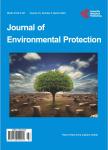Households as Sources Contributing the Most to Urban Solid Wastes Production:Implications for a Better Management and Disposal
作者机构:Instituto de Investigaciones en Ciencias de la TierraUniversidad Michoacana de San Nicolas de HidalgoCiudad UniversitariaMoreliaMexico Sociedad Mexicana de Ciencia y Tecnologia Aplicada a los Residuos SolidosA.C.(SOMERS)Ciudad de MexicoMexico Tecnologico Nacional de MexicoInstituto Tecnologico de TolucaDivision de Estudios de Posgrado e InvestigacionMetepecMexico CONACYT-Consorcio CENTROMETQueretaroMexico
出 版 物:《Journal of Environmental Protection》 (环境保护(英文))
年 卷 期:2019年第10卷第8期
页 面:1072-1084页
学科分类:1002[医学-临床医学] 100214[医学-肿瘤学] 10[医学]
主 题:Waste Dwellings Management Recycling Survey
摘 要:Households are the sources contributing the most to the production of urban solid wastes in developing countries. The present study analyses the generation of domestic solid wastes in a settlement in Mexico in two different years. The goals were to compare composition and rates of generation into the periods to assess changes and the influence of socioeconomic variables. In 1998 and 2004, wastes from households were sampled of three socioeconomic levels randomly selected, and a survey was applied. Data obtained were analyzed with descriptive and multivariate analysis. Results of generation rate and composition of domestic solid wastes showed a negative correlation between generation and income in the first one, but positive in the second one;in both, composition did not show correlation. Rates of per capita generation, per household, population and density of inhabitants per dwelling increased, and the generation of wastes were more with respect to population growth, which emphasizes the influence of economic and demographic variables. This study corroborates that households are the principal sources of urban solid wastes and it is emphasized that management strategies must preponderate households to be successful. In addition, this information is important to establish strategies for an integral management of urban solid wastes in developing countries.



